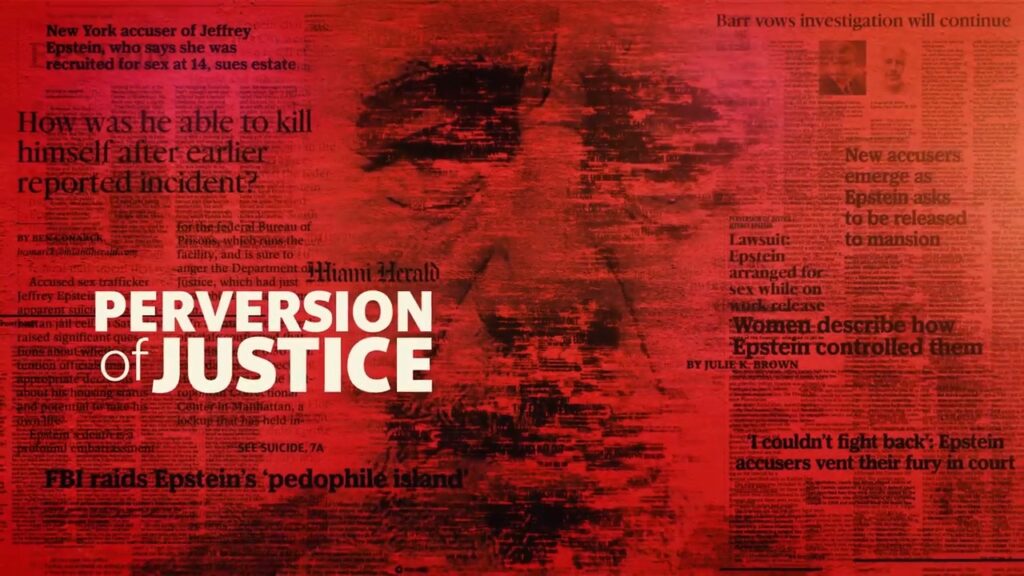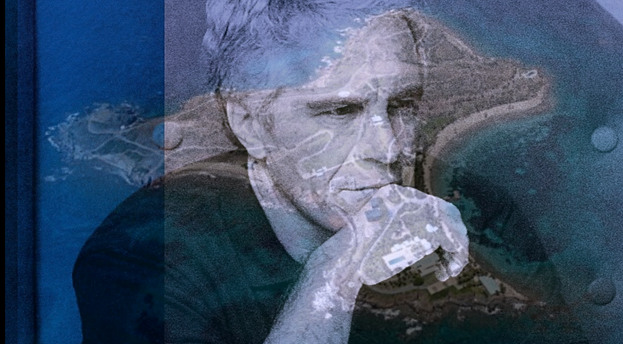NEW YORK — A federal judge on Wednesday handed a partial victory to U.S. Virgin Islands Attorney General Denise George, who is pursuing a civil racketeering complaint against the estate of Jeffrey Epstein, partially granting her access to an ongoing civil lawsuit that involves the disgraced financier and close associates.
USVI Attorney General George brought a civil enforcement action against the Epstein estate in January, calling it an ongoing criminal enterprise. She went on to identify the two executors to the estate — Epstein lawyer Darren Indyke and accountant Richard Kahn — as alleged co-conspirators.
Epstein, who had homes in Palm Beach, Manhattan, Paris and New Mexico, also maintained an estate on Little Saint James Island off the coast of St. Thomas. He also owned a second private island nearby called Great Saint James Island.
George asked U.S. District Judge Loretta Preska on September 1 to grant the territory intervenor status, allowing for confidential access to materials filed under seal with the U.S. District Court for the Southern District of New York.
Preska is presiding over a now-settled civil lawsuit between accused Epstein co-conspirator Ghislaine Maxwell and Epstein victim Virginia Roberts Giuffre. Although the case was settled in 2017, the Miami Herald sued for access to depositions and other records from that lawsuit, and Preska in July ruled there was a presumption of public access to these documents.
Some documents came out quickly, and others, such as lengthy depositions by Maxwell, have been the subject of wrangling since summertime. On Wednesday, Preska handed Attorney General George a partial win.
Although she didn’t give the attorney general complete access to the case files, Preska granted parts of the September request from George. She ruled that no later than December 10, Giuffre’s attorneys must provide to the U.S. Virgin Islands, under seal, a copy of Epstein’s deposition in the Giuffre-Maxwell lawsuit, which began in 2015, and all exhibits that are attached to it. Attorneys must also provide to George a list of everyone who sat for depositions in the dispute.
“The USVI may use these materials solely in connection with the USVI’s pending Virgin Islands Criminally Influenced and Corrupt Organizations Act enforcement action against the estate of Jeffrey E. Epstein and several Epstein-controlled entities,” read the Wednesday order from Preska, which also warned that government lawyers there “shall be subject to sanctions for any unauthorized public disclosure of the identities of Epstein’s victims.”
Underscoring the complexity of several overlapping legal battles, not the least of which is Maxwell’s federal criminal case, Preska told the Virgin Islands legal team it would receive a copy of a prior order, put in the docket under seal away, explaining why certain information was ordered disclosed to celebrity attorney Alan Dershowitz. He is embroiled in a pair of competing defamation suits brought by him and against him involving Giuffre, who claims she was forced by Epstein to have sex with Dershowitz and other powerful men.
Dershowitz denies this and has aggressively pushed to release all information that pertains to him in order to clear his name. The problem for Preska is that some of the information is tied up with non-parties, who are numbered in court documents and referred to as John Doe 1, John Doe 2 and so on. These “Does” don’t want their names disclosed.
Preska’s order sought to make clear there was “a certain nonparty Doe with particularly weighty privacy interests” that needed to be protected.

Dershowitz helped engineer a deal in 2008 for Epstein that avoided tough federal charges in favor of lighter treatment by state prosecutors in Florida. The Miami Herald’s Perversion of Justice series in November 2018 spotlighted the deal and brought renewed attention on Epstein. He was arrested in July 2019 on federal sex crime charges and was found dead in his jail cell the following month in an apparent suicide.
His longtime associate Maxwell was arrested in July 2020, charged with four counts of sexual trafficking of a minor and two counts of perjury. She was considered a flight risk, denied bail and held in a New York detention center awaiting trial next summer.
Maxwell’s lawyers had argued that she should be granted bail because of the risk of COVID-19, and this week federal prosecutors acknowledged that Maxwell is currently in quarantine because she was exposed to someone who tested positive.
Maxwell has, so far, tested negative, but her lawyers continued their long-running dispute with the government about the terms of Maxwell’s detention, saying that she is constantly monitored by a camera, even when she leaves her cell, and woken every 15 minutes at night to ensure that she is still breathing — presumably in response to Epstein’s death in custody. Her lawyers asked that the judge summon Warden Heriberto Tellez from Maxwell’s facility, the Metropolitan Detention Center, to address Maxwell’s conditions.
Maxwell has fought Preska’s order to release documents from the civil case, claiming they will harm her ability to defend herself in the federal case. Appellate judges have sided with Preska on the presumption of public access to the documents.
In a rare look back at the 2007-08 federal investigation into Epstein, the Justice Department earlier this month concluded that there was no corrupt intent to treat Epstein lightly but that the U.S. attorney at the time, Alexander Acosta, exercised poor judgment in reaching a non-prosecution agreement with Epstein that also spared many of his close associates legal action at the time.

